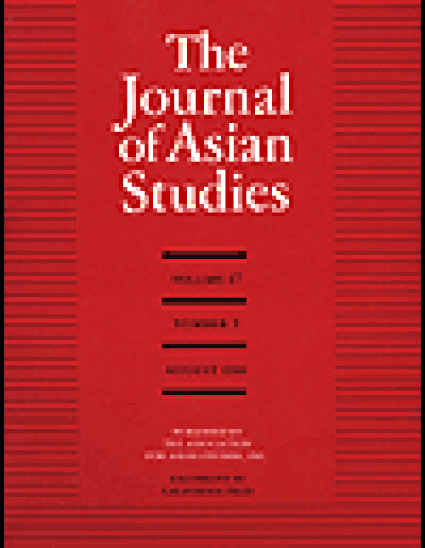
Article
Review of: Idioms of Improvement: Vidyasagar and Cultural Encounter in Bengal, by Brian A. Hatcher
The Journal of Asian Studies
(1998)
Abstract
Upon graduation from Sanskrit College in 1841, Iśwarcandra Bandyopādhyāy (1820-91) was given the title Vidyāsāgar (Ocean of Learning) for his mastery of the education of a paṇḍit. He found, however, a novel and independent livelihood as an author and publisher of Bengali textbooks suitable for schools using western models of pedagogy. He also was employed by the Government of India in increasingly responsible positions, from which he tried and failed to modernize both normal and primary vernacular education in Bengal (he resigned in frustration from all government positions in 1858). Contributing his superior knowledge of dharmaśāstra, he joined efforts by Brāhmos in the1850s to legalize the remarriage of Hindu widows, succeeding in 1856. In the 1870s he failed to persuade elite Bengali society to join him in a similar campaign to outlaw polygamy; and thereafter he seems often to have been withdrawn and bitter. Expressing its sense of self-contradiction in his life, a nineteenth-century Bengali witticism ran: "Vidyāsāgar is a Sanskrit luci fried in English butter."
Keywords
- Vidyāsāgar,
- Iśwarcandra Bandyopādhyāy
Disciplines
Publication Date
May, 1998
Publisher Statement
Published by: Association for Asian Studies
Stable URL: http://www.jstor.org/stable/2658901
Citation Information
David Curley. "Review of: Idioms of Improvement: Vidyasagar and Cultural Encounter in Bengal, by Brian A. Hatcher" The Journal of Asian Studies Vol. 57 Iss. 2 (1998) p. 568 - 569 Available at: http://works.bepress.com/david-curley/33/
